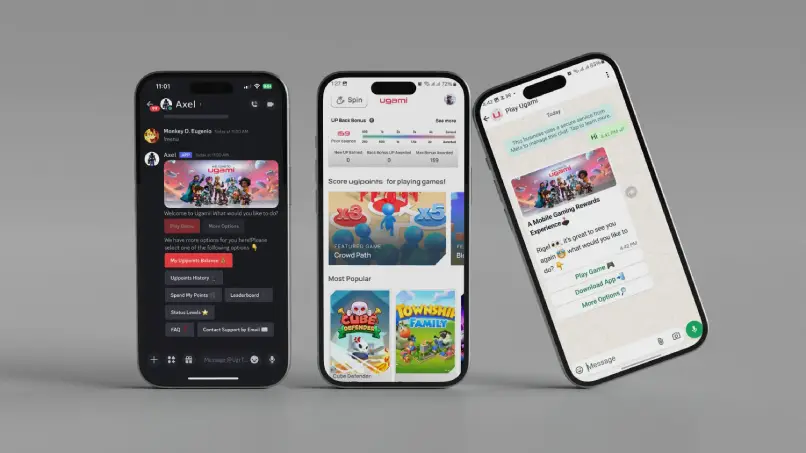How to play to earn rewards: comprehensive guide for new gamers
How to play to earn rewards: comprehensive guide for new gamers
Blog Article
Why Play-to-Earn Incentives Are Changing the Way You Play and Gain
The introduction of play-to-earn models symbolizes a remarkable shift in the gaming landscape, welcoming players to discover not only the home entertainment worth of video games yet also their prospective as income-generating platforms. Recognizing these characteristics raises important inquiries concerning the future of gaming and the implications for both gamers and developers alike.
Development of Play-to-Earn Versions
Over the last few years, the gaming market has actually witnessed a considerable change with the introduction of play-to-earn versions, basically modifying exactly how gamers engage with digital environments. This innovative method allows gamers to obtain substantial incentives with their in-game activities, creating a shift from traditional gaming paradigms where satisfaction and competitors were the main motivations.
Play-to-earn models leverage blockchain modern technology and non-fungible symbols (NFTs) to supply players with ownership of in-game properties, which can be traded or marketed for real-world money. Therefore, players are incentivized to spend effort and time into games, cultivating a feeling of company and financial possibility. play to earn rewards. This change has brought in a varied player base, including those that may have formerly watched gaming as a totally leisure activity
Numerous platforms have arised, showcasing successful implementations of this version, such as Axie Infinity and Decentraland. These platforms have not just produced substantial earnings however also stimulated discussions around the sustainability and values of such economic systems. As play-to-earn versions continue to evolve, they assure to redefine the relationship in between players, programmers, and the broader electronic economic climate, paving the method for a new period in video gaming.
Advantages for Gamers
As players involve with play-to-earn models, they unlock a variety of advantages that expand beyond mere enjoyment. Unlike traditional gaming, where players spend time and cash without substantial returns, play-to-earn systems allow gamers to earn copyright or in-game possessions that can be transformed to real-world worth.
In addition, play-to-earn models advertise area structure amongst gamers. Gamers commonly team up to attain common objectives, consequently cultivating social connections that enhance the overall experience. This sense of area can bring about participating gameplay, where gamers share methods and sources, improving both personal and team accomplishments.
Additionally, these designs can equalize access to video gaming by enabling players from diverse economic histories to profit economically. By taking part in play-to-earn ecological communities, people can get skills and understanding about blockchain technology, more widening their profession chances in the expanding electronic economic situation. Inevitably, the benefits for gamers expand well past gameplay, influencing their social, financial, and instructional landscapes positively.
Obstacles in the Environment
While the play-to-earn ecological community presents considerable opportunities, it is not without its challenges. Changes in worth can discourage possible gamers who look for steady revenue streams.
Another difficulty is the threat of scams and deceitful plans that can torment the community. Gamers might encounter misleading platforms promising high benefits yet inevitably resulting in monetary loss. Ensuring trust and protection is essential for the long-lasting feasibility of play-to-earn versions.
Moreover, the ecological influence of blockchain pc gaming can not be overlooked. The energy consumption important link related to mining and deal handling elevates moral questions about sustainability. Game designers need to locate an equilibrium in between fulfilling gamers and decreasing ecological impacts.
Lastly, the governing landscape is still evolving, posturing prospective threats for programmers and gamers alike. Uncertain legal frameworks can hinder technology and restrict the development of play-to-earn environments. Dealing with these challenges is vital for recognizing the full potential of this transformative gaming standard.
The Function of Blockchain Innovation
Blockchain technology works as the backbone of the play-to-earn ecological community, resolving several of the difficulties previously outlined. By making use of decentralized journals, blockchain makes sure transparency and protection in purchases. Players can with confidence gain and trade in-game possessions, knowing that possession is verifiable and not subject to adjustment.

Tokenization of properties plays a vital duty, approving players click to read more real ownership of their in-game things, which can be bought, sold, or traded on view different industries. This encourages a vivid secondary market, where gamers can monetize their skills and time purchased the game.
Moreover, blockchain innovation makes it possible for interoperability between different games and platforms, enabling gamers to lug their properties throughout different environments. This adaptability not only boosts customer experience however likewise advertises a much more comprehensive gaming setting, inevitably reshaping the landscape of video gaming and earning.
Future Fads in Gaming
The video gaming sector gets on the brink of a transformative development, driven by arising technologies and moving gamer assumptions. As play-to-earn versions gain traction, players are significantly looking for immersive experiences that blend amusement with tangible incentives. This shift is motivating designers to introduce, concentrating on creating appealing gameplay that cultivates community and communication.
One remarkable pattern is the assimilation of digital fact (VIRTUAL REALITY) and boosted reality (AR), enhancing the video gaming experience by supplying much deeper immersion and interactive settings. In addition, developments in expert system are enabling much more advanced non-player personalities (NPCs) and flexible gameplay, customizing experiences to specific gamer preferences.

Conclusion
To conclude, the play-to-earn design is dramatically changing the gaming landscape by allowing gamers to derive real-world worth from their in-game tasks. This paradigm change not only boosts gamer engagement and financial investment but also raises obstacles that must be dealt with to make sure sustainability within the community. As blockchain innovation continues to promote possession of digital properties, the future of pc gaming assures more innovation and possibilities for gamers across diverse backgrounds.
Report this page